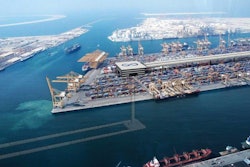April 14--A high-stakes battle is underway in Washington over launching the U.S. government's most sophisticated national security satellites.
Space entrepreneur Elon Musk is pitted against the nation's two largest weapons makers, Boeing Co. and Lockheed Martin Corp., in a fight for military contracts worth as much as $70 billion through 2030.
For eight years, the Pentagon has paid Boeing and Lockheed -- operating jointly as United Launch Alliance -- to launch the government's pricey spy satellites without seeking competitive bids. Now, the arrangement is embroiled in controversy on Capitol Hill over escalating costs and the cozy partnership.
The monopoly drew fire this month as lawmakers repeatedly peppered Defense leaders with questions about the arrangement. A bipartisan group of seven senators also wrote Defense Secretary Chuck Hagel asking for more scrutiny. That came days after the Government Accountability Office reported that the program had tripled in cost in the last five years.
The letter urged Hagel to "take all necessary steps to ensure the Air Force fulfills its commitment to provide meaningful competition."
That's good for Musk and his Hawthorne firm, Space Exploration Technologies Corp., or SpaceX. Over the years, Musk has repeatedly battled to break the grip of entrenched aerospace giants on the nation's space programs.
SpaceX has already changed the way NASA conducts spaceflight. The company now runs regular cargo resupply missions to astronauts aboard the International Space Station. It became the first private company to do so, a year after the space shuttle fleet was retired in 2011.
Last month, Musk testified before Congress seeking the right to bid on the Air Force's space launch program, called the Evolved Expendable Launch Vehicle.
"There should be no more sole-sourcing under this program when competition is an option," Musk said.
In 2012, Undersecretary of Defense Frank Kendall wrote a memo advising the Air Force to introduce competition, and identify "up to 14 missions that should be competed as early as 2015."
But the Air Force's recent budget proposal offered no plans for competition next fiscal year, which starts in October. It also slashed from 14 to seven the number of missions from 2015 to 2017. That was the catalyst for the Senate letter, which included the signatures of Democratic California Sens. Dianne Feinstein and Barbara Boxer.
The Air Force has responded by saying it favors more competition -- but cut the number of launches because there was no need to put additional satellites into orbit.
As it stands, the Air Force buys United Launch Alliance rockets to launch school-bus sized satellites for spying, weather forecasting, communications, GPS and other experimental purposes. The government pays the company nearly $1 billion each year whether it launches six times or none.
The money covers the alliance's costs including facility support, launch operations and support engineering.
"This is a great example of a bilateral monopoly at work: There is one buyer and one seller," said Todd Harrison, a military analyst for the Center for Strategic and Budgetary Assessments in Washington, D.C. "We shouldn't expect it to be efficient. We shouldn't expect it to lower costs."
Boeing and Lockheed formed the alliance in 2006 because market demand could not sustain two competitors at the time. The goal was to slash costs by more than half and cut the time to prepare for launch.
United Launch Alliance developed its family of Delta IV and Atlas V rockets to dominate the launch business. When the rockets were built, they were the most powerful since the Saturn V launched three men to the moon decades earlier.
At the time, the company believed it could use demand from the telecommunications market to provide the military rockets at reduced prices. But the commercial boom never materialized, and the company has largely depended on the U.S. government.
All of the alliance's 69 launches for the Pentagon have been successful. That's critical because the satellites they carry are expensive and take years to build.
"There's a reason the Pentagon doesn't obsess over the launch costs anymore," said John Pike, director of GlobalSecurity.org, a website for military policy. "Their rockets aren't blowing up."
One of the costliest failures in space history came in 1998 when a Titan IV rocket exploded during liftoff, scattering a $1-billion spy satellite over the Atlantic Ocean. That was only the beginning. Over the next year, the rocket industry was rocked by five more spectacular failures.
Although United Launch Alliance has never had such a failure, its launches are expensive. Last month, the GAO found that the cost of the launch program increased $28.1 billion to $64 billion over the last fiscal year -- the most of any of the 80 Pentagon programs that the office examined.
United Launch spokesman Mark E. Bitterman said that costs appeared higher because the GAO did not account for a change in the way the Pentagon buys rockets, namely by buying in bulk.
According to the Air Force, this bulk-buy strategy will save $4.4 billion in the long run.
Accounting for United Launch Alliance's savings isn't easy, however, because neither the company nor the Air Force publishes rocket costs. Making matters worse is the secret nature of spy satellites. Many of the missions are classified by the National Reconnaissance Office.
The GAO wrote last month that it's difficult for the Pentagon to know what it's paying for: "Minimal insight into contractor cost or pricing data meant [the Defense Department] may have lacked sufficient knowledge to negotiate fair and reasonable launch prices."
In recent months, United Launch Alliance has been criticized for the way it builds its rockets. It uses a Russian-built RD-180 rocket engine on its Atlas V.
In the wake of Russia's seizure of Crimea, SpaceX has hammered United Launch Alliance over use of the engine. The Pentagon has even directed the Air Force to perform a review to understand the implications of using it.
"There has been an onslaught of attacks on us," Bitterman said. "SpaceX is just trying to move us aside. That's not going to happen."
Musk said his company is able to keep costs low -- rockets start at $56 million -- because it manufactures nearly all of its own parts. Founded in 2002, SpaceX makes rockets at a sprawling facility in Hawthorne that was once used to assemble fuselage sections for Boeing 747s.
Gwynne Shotwell, president and chief operating officer of SpaceX, said that carrying out missions for the Air Force would add around $25 million more in "mission assurance" costs. But, she added, the price would still be far below competitors.
"United Launch Alliance is not competition," she said. "Once government gets over the hump of sole-sourcing to them, ULA is dead."
Still, there is no guarantee that SpaceX will win the Air Force contracts.
The company still must win government certification to launch national security satellites with its Falcon 9 rocket. That requires three successful test launches that meet Air Force specifications, along with a host of audits and technical reviews.
It has eight launches with the Falcon 9 -- only one of which has officially qualified for Air Force specs. SpaceX is also building a massive new rocket, called Falcon Heavy, capable of lifting the government's bulkier satellites. It too would have to be approved by the Air Force.
"We might lose some battles along the way," Shotwell said. "But we're going to win this war."
Twitter: @wjhenn
Copyright 2014 - Los Angeles Times


















